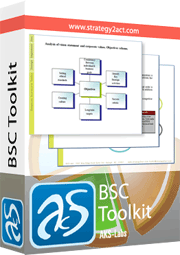Information overload is a fact of modern life, making many common
decisions (such as choosing a cellphone plan) unbearably confusing.
Although choice offers options to consumers, too many choices or too
many features per choice can cause people to delay decisions or make
less-than-optimal choices.
decisions (such as choosing a cellphone plan) unbearably confusing.
Although choice offers options to consumers, too many choices or too
many features per choice can cause people to delay decisions or make
less-than-optimal choices.
But recent research into how individuals process information offers
some promising suggestions for dealing with information overload.
some promising suggestions for dealing with information overload.
The key may involve “psychological distancing” — removing oneself
from the morass of details surrounding a decision and considering the
choices on a more abstract level.
from the morass of details surrounding a decision and considering the
choices on a more abstract level.
As authors Jun Fukukura, Melissa J. Ferguson and Kentaro Fujita explain
in their 2013 article “Psychological Distance Can Improve Decision
Making Under Information Overload via Gist Memory,” in the Journal
of Experimental Psychology: General, such distancing (which can be
either temporal or physical) can help people to filter out the less-vital
details and enable them to focus on the gist of the matter.
in their 2013 article “Psychological Distance Can Improve Decision
Making Under Information Overload via Gist Memory,” in the Journal
of Experimental Psychology: General, such distancing (which can be
either temporal or physical) can help people to filter out the less-vital
details and enable them to focus on the gist of the matter.
The authors tested several aspects of how psychological distance
influences decision making. In one study, they asked some participants,
who were students from Cornell University in Ithaca, New York, to
write about a car they would buy next year, and others to write about
a car they would buy tomorrow. (A control group was not given a
writing task.) Participants were then given information to read about
48 individual features (such as mileage, handling, year and trunk
capacity) of four different cars — twelve features per car — and had
only seven seconds to absorb each piece of information before the
next piece appeared on a computer screen. Participants were then asked
to choose the car they thought was best.
influences decision making. In one study, they asked some participants,
who were students from Cornell University in Ithaca, New York, to
write about a car they would buy next year, and others to write about
a car they would buy tomorrow. (A control group was not given a
writing task.) Participants were then given information to read about
48 individual features (such as mileage, handling, year and trunk
capacity) of four different cars — twelve features per car — and had
only seven seconds to absorb each piece of information before the
next piece appeared on a computer screen. Participants were then asked
to choose the car they thought was best.
Those who had written about the future before receiving information
chose the best car (the one whose features were considered most
important to people in an earlier pilot) significantly more often than
participants who had written about a near-term purchase (69% vs.
40%) or those in the control group (39%).
chose the best car (the one whose features were considered most
important to people in an earlier pilot) significantly more often than
participants who had written about a near-term purchase (69% vs.
40%) or those in the control group (39%).
In another test of psychological distancing, the researchers randomly
assigned one group of individuals to write for three minutes about the
previous day and another group to write for three minutes about a day
about a year earlier. Then they presented participants with sets of
information about the features of the four different cars; a com
puter screen displayed information about the features of one car at a
time, and the participants learned about the cars at their own pace.
When the participants were done reading, they were asked to select
the car they would buy and to characterize the memory strategy they
had used.
assigned one group of individuals to write for three minutes about the
previous day and another group to write for three minutes about a day
about a year earlier. Then they presented participants with sets of
information about the features of the four different cars; a com
puter screen displayed information about the features of one car at a
time, and the participants learned about the cars at their own pace.
When the participants were done reading, they were asked to select
the car they would buy and to characterize the memory strategy they
had used.
Those who had written about the past selected the best car at a much
higher rate than those who had written about recent occurrences (59%
versus 34%) or members of the control group (29%), who had not done
a writing task.
higher rate than those who had written about recent occurrences (59%
versus 34%) or members of the control group (29%), who had not done
a writing task.
What’s more, those participants who had written about the past
reported relying on “gist memory” — in other words, memory about the
gist of a matter — significantly more often than the others. The
researchers found that mind-sets involving psychological distance
enabled participants to organize related product features better.
reported relying on “gist memory” — in other words, memory about the
gist of a matter — significantly more often than the others. The
researchers found that mind-sets involving psychological distance
enabled participants to organize related product features better.
To be sure, psychological distancing isn’t appropriate for every situation.
In instances where people are expected to recall and piece together
specific details (for example, jury trials or investigations), it may be
harmful. But in many circumstances involving information overload,
it can result in better decisions.
In instances where people are expected to recall and piece together
specific details (for example, jury trials or investigations), it may be
harmful. But in many circumstances involving information overload,
it can result in better decisions.











0 comments:
Post a Comment